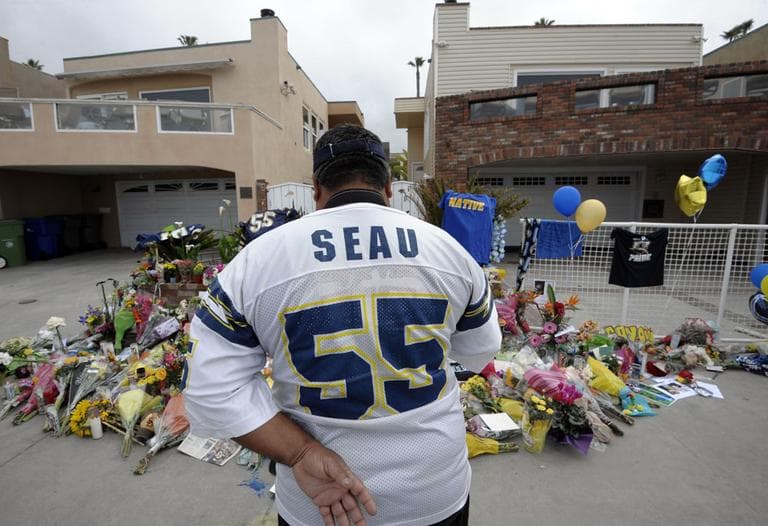Advertisement
COMMENTARY
Questions Surround Junior Seau's Apparent Suicide

The members of Junior Seau's family and the men who played beside him have expressed shock at his (apparent) suicide. The refrain from them in the articles that have appeared since Seau's death is that nobody was aware of any indication that he would take his life.
In most respects, it may be no more legitimate to draw conclusions about all ex-pro football players than it is to generalize about all retired insurance salesmen or bus drivers. But hasn't it become apparent that numbers of ex-pro football players have been and are at risk?
Junior Seau is the second ex-NFL player to have committed suicide this spring. Ray Easterling, late of the Atlanta Falcons, shot himself in April. That story was not widely reported, in part because Easterling, who never achieved Junior Seau's level of celebrity, had been retired since 1979.
Easterling was one of the many hundreds of ex-NFL players suing the league for failure to acknowledge and respond to concussion-related injuries and conditions, including dementia, memory loss, and depression. His wife, who reported that Easterling's condition had been deteriorating, has said she will continue the lawsuit.
Circumstances suggest that the suicide of Dave Duerson, the safety whose NFL career ended in 1993, should also be mentioned in the context of this week's sad news. Duerson, whose final years were characterized by erratic behavior and bankruptcy, shot himself in the chest last year. He left a note directing his family to send his brain to the Boston University School of Medicine so that it could be studied for evidence of chronic traumatic encephalopathy, the condition that has been detected in athletes who have suffered multiple head injuries.
Though Junior Seau apparently did not leave a note, the fact that he shot himself in the chest has led to speculation that he may have wanted to leave his brain intact for the researchers.
Three very recent suicides among ex-NFL players would not prove anything, though the many more instances of self-destructive and erratic behavior, dementia, and premature death among the peers of Junior Seau, Ray Easterling, and Dave Duerson certainly cry out for investigation. The fact that more than 1,500 ex-players suffering from various life-diminishing disabilities, neurological and otherwise, are suing their former employers for consciously disregarding their health and well-being doesn't prove anything, either, though perhaps various lawyers will be able to do so to the satisfaction of various juries.
As I mentioned, most of those who've commented on Junior Seau's death professed shock. Harry Carson did not. The nine-time Pro Bowl selection for the New York Giants retired in 1988. Carson wrote a book about his own post-concussion problems. He told a reporter this week that he'd anticipated that ex-players would be killing themselves.
"In the past, I would have been shocked," he said. "But I'm not shocked anymore."
This program aired on May 3, 2012.
